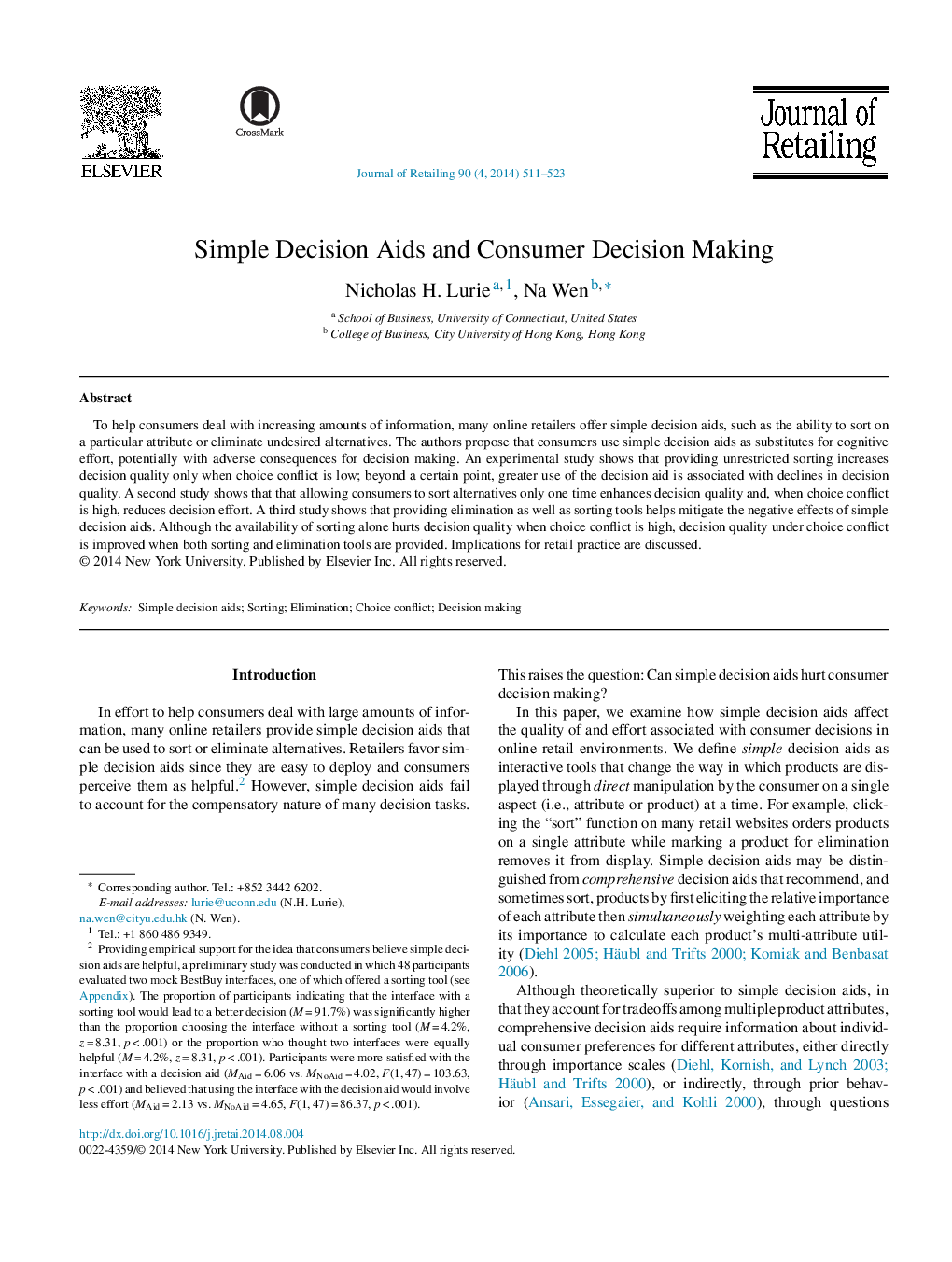| Article ID | Journal | Published Year | Pages | File Type |
|---|---|---|---|---|
| 886261 | Journal of Retailing | 2014 | 13 Pages |
•Providing consumers with a simple sorting tool increases decision quality only when choice conflict is low.•Beyond a certain point, greater use of the decision aid is associated with declines in decision quality.•Decision quality is enhanced, and under high choice conflict effort reduced, by restricting decision aid use.•Providing the ability to eliminate, as well as a sort, alternatives enhances decision quality under choice conflict.
To help consumers deal with increasing amounts of information, many online retailers offer simple decision aids, such as the ability to sort on a particular attribute or eliminate undesired alternatives. The authors propose that consumers use simple decision aids as substitutes for cognitive effort, potentially with adverse consequences for decision making. An experimental study shows that providing unrestricted sorting increases decision quality only when choice conflict is low; beyond a certain point, greater use of the decision aid is associated with declines in decision quality. A second study shows that that allowing consumers to sort alternatives only one time enhances decision quality and, when choice conflict is high, reduces decision effort. A third study shows that providing elimination as well as sorting tools helps mitigate the negative effects of simple decision aids. Although the availability of sorting alone hurts decision quality when choice conflict is high, decision quality under choice conflict is improved when both sorting and elimination tools are provided. Implications for retail practice are discussed.
Graphical abstractFigure optionsDownload full-size imageDownload as PowerPoint slide
